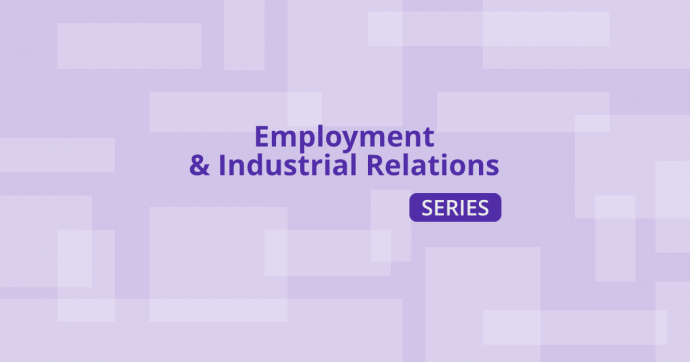
SANBOS (MALAYSIA) SDN BHD V GAN SOON HUAT [2021] MLJU 498
The Court of Appeal has held that the requirement to plead reinstatement as a remedy is only material at the stage of making a representation to the Director General of the Industrial Relation (“Director General”) under Section 20(1) of the Industrial Relation Act 1967 (“Act”). There is no such requirement anymore once the representation has been referred to the Industrial Court by the Minister under Section 20(3) of the Act (Note: With effect from 1st January 2021, the representation will be referred to the Industrial Court directly by the Director General). In other words, an employee is not required to plead reinstatement as a remedy in the Statement of Case at all and failure to do so is not fatal to the claim.
Facts
The Respondent in this case was a former employee of the Appellant since 1977. He worked as a sales representative with monthly salary and was paid commission based on the rate as formulated by the Appellant, known as Sales Commission Scheme. Over the years, the Appellant had revised the Sales Commission Scheme numerous times and removed certain sales coverage area from the Respondent, hence causing his monthly sales commission to be substantially reduced. In view of these issues, the Respondent resigned and deemed himself to be constructively dismissed. He proceeded to file a representation to the Director General and the representation was then referred to the Industrial Court by the Minister.
In the Industrial Court, the Respondent’s claim was dismissed on two grounds. Firstly, due to the Respondent’s failure to plead the remedy of reinstatement in the Statement of Case and secondly, the Respondent failed to prove that he was constructively dismissed. According to the Industrial Court, without the plea of reinstatement, the Industrial Court has no jurisdiction to hear the matter. The Respondent then filed a judicial review application at the High Court.
The High Court disagreed with the stance taken by the Industrial Court. The High Court held that the claim shouldn’t be dismissed merely because the Respondent failed to plead the remedy of reinstatement, which is merely a point of procedure. The Industrial Court derives its jurisdiction from the order of reference by the Minister under Section 20(3) of the Act and the omission to plead reinstatement does not affect the jurisdiction of the Industrial Court to hear and determine the case on merits. Dissatisfied with the decision, the Appellant appealed to the Court of Appeal.
Decision
The Court of Appeal agreed with the decision of the High Court in relation to the jurisdiction issue, that the Industrial Court was seized with the jurisdiction to hear the dispute between an employer and employee once the Minister had duly made a reference under Section 20(3) of the Act. The requirement to plead reinstatement as a remedy is only material at the stage of making a representation to the Director General. The Industrial Court does not cease to have jurisdiction once a reference is duly made under Section 20(1) of the Act even if the remedy of reinstatement is not pleaded or pursued at the hearing. Regardless of the above, the Court of Appeal found that the Respondent has failed to prove that he was constructively dismissed by the Appellant and proceeded to set aside the High Court’s decision.
Takeaway
The requirement to plead reinstatement as a remedy was long regarded as a mandatory aspect for a reference to the Industrial Court and failure to do so will be fatal to the employee’s case. With this Court of Appeal’s decision, an employer may no longer take advantage of such technicality point to defeat the employee’s case summarily and the Industrial Court may still proceed to hear the case on its merit.

Comments